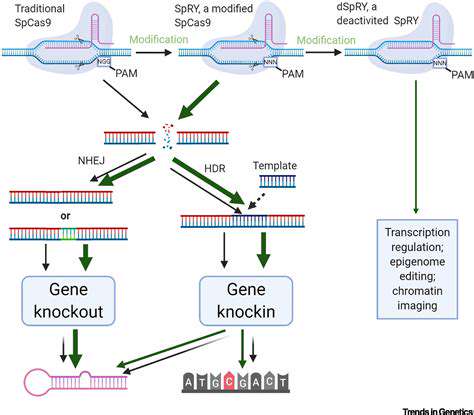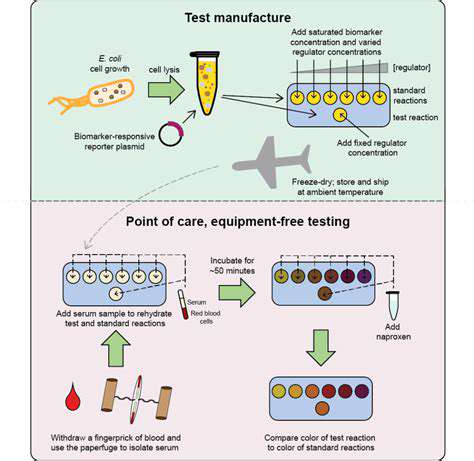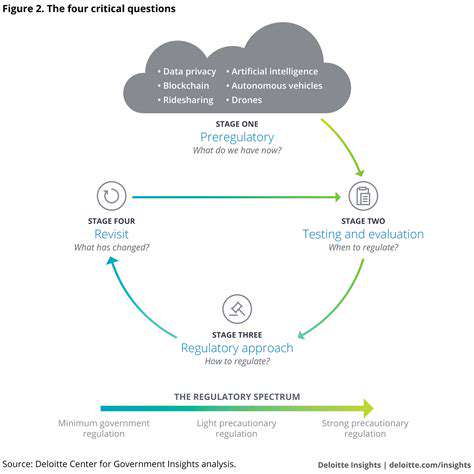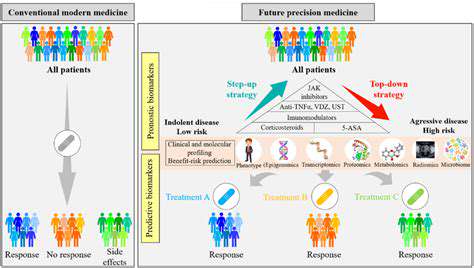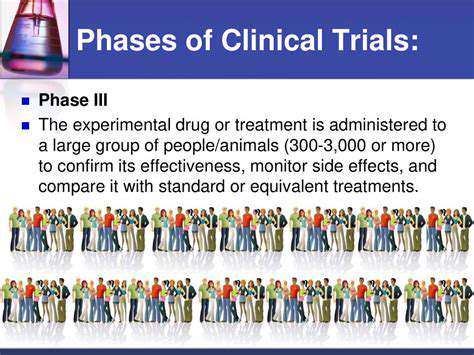Beyond Gene Editing: Precision Agriculture
CRISPR technology is rapidly transforming agricultural practices. Beyond simply modifying traits like pest resistance or yield, researchers are now exploring the potential of CRISPR to enhance nutritional content in crops. This could lead to more nutritious foods with higher levels of vitamins and minerals, addressing global malnutrition concerns. The precision and efficiency of CRISPR allow for targeted modifications, potentially leading to crops that require fewer pesticides and fertilizers, promoting sustainable agriculture and reducing environmental impact.
Imagine crops engineered to thrive in challenging environments, resisting drought, salinity, or extreme temperatures. CRISPR offers a powerful tool to achieve this, paving the way for increased food security in regions facing climate change pressures. The potential applications span a broad spectrum, from developing crops with enhanced flavour profiles to creating disease-resistant varieties that require less intervention from farmers.
CRISPR in Diagnostics: Rapid and Accurate Testing
The ability of CRISPR to bind to specific DNA sequences makes it a powerful tool for developing rapid and accurate diagnostic tests. Researchers are leveraging this property to create diagnostic platforms for various diseases, including infectious diseases like HIV and cancer. CRISPR-based diagnostic tests offer the potential to detect diseases earlier and with greater accuracy, leading to faster treatment and improved patient outcomes.
Imagine a future where a simple blood test could quickly and accurately diagnose a wide range of illnesses, from bacterial infections to genetic disorders. CRISPR-based diagnostic tools are poised to revolutionize healthcare by providing faster, more accessible, and more affordable testing options, particularly in resource-limited settings.
Therapeutic Applications: Targeted Gene Therapies
Beyond treating genetic disorders, CRISPR holds promise for treating a diverse array of conditions. Researchers are investigating its potential in treating cancer by targeting specific genes involved in tumor growth and development. CRISPR-Cas9 can potentially be used to modify immune cells to better fight cancer cells, opening up new avenues for personalized cancer therapies. The specificity of CRISPR allows for the precise targeting of these cells, minimizing off-target effects.
CRISPR's potential in treating neurological disorders, such as Huntington's disease and Alzheimer's disease, is also being explored. By precisely targeting and correcting the genetic defects associated with these diseases, CRISPR may offer new hope for patients. This precision approach holds the key to potentially reversing disease progression and improving patient quality of life.
CRISPR in Environmental Remediation: Degrading Pollutants
Beyond human health, CRISPR technology is emerging as a powerful tool for environmental remediation. Researchers are exploring its potential to engineer microorganisms capable of degrading pollutants, such as heavy metals, plastics, and industrial chemicals, offering innovative solutions for environmental cleanup. The efficiency and precision of CRISPR allow for the development of microorganisms with enhanced capabilities to break down these pollutants.
Ethical Considerations and Future Directions
As with any powerful technology, CRISPR raises important ethical considerations. Careful consideration of potential risks and benefits is crucial to ensure responsible development and application. These concerns include the potential for unintended consequences, the equitable access to this technology, and the societal implications of altering the human genome. Ongoing research and public discourse are essential to navigate these challenges.
The future of CRISPR is bright, with ongoing research expanding its potential applications across diverse fields. Continued investigation into its capabilities, coupled with careful ethical consideration, will be pivotal in harnessing its potential for the betterment of humanity and the environment.

CRISPR-Cas Systems for Synthetic Biology: Engineering New Functions
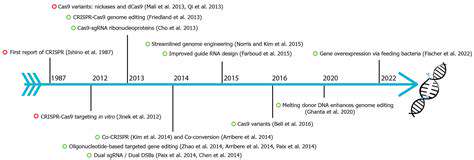
CRISPR-Cas Systems: A Powerful Tool
CRISPR-Cas systems are revolutionary gene-editing technologies derived from bacterial adaptive immune systems. These systems have rapidly transformed biological research and hold immense promise for therapeutic applications. Their ability to precisely target and modify DNA sequences has opened up possibilities for treating genetic disorders and developing novel therapies.
The versatility of CRISPR-Cas systems stems from their ability to be programmed to target specific DNA sequences. This precision allows researchers to make specific changes to the genome, such as insertions, deletions, or modifications, with unprecedented control. This precision is critical for avoiding unintended consequences and maximizing the effectiveness of gene therapies.
Applications in Synthetic Biology
In synthetic biology, CRISPR-Cas systems are proving invaluable for constructing and manipulating biological circuits and pathways. These systems can be utilized to build novel genetic components, design synthetic organisms with desired traits, and even engineer complex biological systems for various applications.
This precise control over DNA manipulation is a key factor in synthetic biology's advancement. By enabling the creation of custom genetic blueprints, CRISPR-Cas systems accelerate the design and development of new biological tools and technologies.
Development of Novel Gene Drives
CRISPR-Cas systems are being explored for the development of gene drives, which are genetic elements that can spread through a population at an accelerated rate. This technology could potentially be used to combat diseases, eradicate invasive species, or enhance desirable traits in populations. However, the ethical implications of gene drives warrant careful consideration.
The potential for widespread and rapid genetic modification through gene drives is significant, yet this technology needs rigorous assessment and careful regulation to mitigate potential risks and unintended consequences. It is crucial to ensure responsible application of this powerful technology.
Therapeutic Potential and Challenges
The therapeutic potential of CRISPR-Cas systems is vast, ranging from treating genetic disorders like cystic fibrosis and sickle cell anemia to targeting cancer cells. The possibility of correcting disease-causing mutations directly within a patient's cells offers hope for a wide range of diseases. However, challenges like off-target effects, delivery methods, and immune responses need to be addressed for widespread clinical application.
Furthermore, ensuring the safety and efficacy of CRISPR-Cas-based therapies in humans is crucial. Extensive research and rigorous testing are essential to avoid potential risks and maximize the benefits of this promising technology.
Ethical Considerations and Future Directions
The use of CRISPR-Cas systems raises significant ethical considerations, particularly regarding germline editing, which could permanently alter the human gene pool. This technology's potential for human enhancement also raises complex questions about societal values and equitable access. Careful ethical frameworks and robust public discourse are needed to navigate these challenges.
The future of CRISPR-Cas systems lies in addressing these ethical concerns and refining the technology for precise, safe, and equitable applications. Continued research and development, coupled with open dialogue, are essential to harness the full potential of CRISPR-Cas systems for the betterment of humanity while mitigating potential risks.
Therapeutic Applications: Beyond the Gene Editing Paradigm
CRISPR-Based Immunotherapy
CRISPR technology is rapidly revolutionizing immunotherapy by enabling the precise engineering of immune cells to enhance their anti-tumor activity. This involves modifying T cells, for example, to target specific cancer antigens with greater efficiency and specificity. By utilizing CRISPR-Cas9 or other CRISPR variants, researchers can eliminate unwanted receptors or introduce chimeric antigen receptors (CARs) that significantly improve the ability of these cells to recognize and destroy cancer cells. This approach promises a more personalized and targeted approach to cancer treatment, with the potential to overcome resistance mechanisms and enhance overall patient outcomes.
Beyond cancer, CRISPR-based immunotherapy holds promise for treating a broad range of immune disorders. Imagine the possibility of correcting faulty immune responses in conditions like autoimmune diseases. Precisely modifying immune cells using CRISPR could potentially restore immune tolerance or regulate immune overreactions, offering a powerful new therapeutic tool for these challenging conditions. This could involve editing immune cells to prevent them from attacking healthy tissues, or modifying them to enhance their ability to fight infections.
CRISPR for Regenerative Medicine
The potential of CRISPR extends far beyond gene editing to encompass regenerative medicine. By precisely targeting and modifying genes involved in tissue regeneration, CRISPR holds the key to repairing damaged tissues and organs. This could involve correcting genetic defects that contribute to conditions like muscular dystrophy or heart failure, or even stimulating the growth of new blood vessels to improve tissue perfusion. The potential to regenerate damaged tissues and restore functionality opens up a new horizon in treating a multitude of debilitating conditions.
Furthermore, CRISPR could be used to develop new strategies for creating and culturing induced pluripotent stem cells (iPSCs). These cells can be differentiated into various cell types, enabling the creation of personalized cell-based therapies. Precise editing with CRISPR could enhance the quality and efficiency of these processes, potentially leading to safer and more effective regenerative therapies, potentially addressing a range of currently incurable diseases. This approach holds tremendous promise for creating personalized treatments for patients with a variety of conditions.
CRISPR-Mediated Drug Delivery
CRISPR technology offers innovative avenues for targeted drug delivery, a critical aspect of precision medicine. Imagine the ability to deliver therapeutic molecules directly to diseased cells or tissues with unprecedented accuracy. CRISPR can be harnessed to develop novel vectors that precisely target specific cells, minimizing off-target effects and maximizing the therapeutic efficacy of drugs. This precise targeting could dramatically improve the efficacy and safety of existing drugs, while opening the door to new avenues for drug development.
This precision drug delivery system could also be adapted for gene therapy applications. By combining CRISPR's ability to modify genes with its potential for targeted delivery, researchers could develop more effective and safer gene therapies for a variety of genetic disorders. The combination of these two powerful technologies paves the way for a new era of personalized medicine, with the potential to treat a wide range of diseases with unprecedented precision and efficacy. The potential applications are truly limitless.

